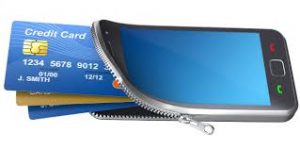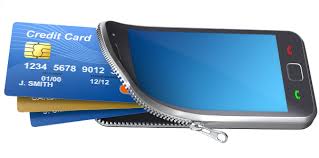All people carry wallets, which they use to keep their cash while travelling. But advances in technology have allowed us to create virtual wallets in which the cash we load is virtual and not real. We can carry these wallets in our smartphones and use them anywhere anytime to pay while travelling, shopping online, etc.
Since the money is already paid for these instruments, these are called Pre-paid Wallet Instruments. They facilitate purchase of goods and services, including funds transfer, against the value stored on such instruments. The pre-paid instruments can be issued as smart cards, magnetic stripe cards, internet accounts, internet wallets, mobile accounts, mobile wallets, paper vouchers and any such instrument which can be used to access the pre-paid amount.

Different types of pre-paid payment instruments used in the country are:
Closed System Payment Instruments: When a person/organization issues pre-paid cards to facilitate the purchase of goods and services from him/it are called Closed System Payment Instruments.
- One cannot withdraw cash from it and also they are not reloadable with cash.
- Since these can only be used to purchase goods and services from the issuer, they do not facilitate payments and settlement for third party services like no bill payments, etc.
- There is some maximum validity of card and also maximum amount that the card can hold.
- Example – Gift vouchers issued by banks and NBFCs, many online stores like Flipkart offer their cards which can only be used to purchase on their site. Various cab companies like Ola offer Ola money which can only be used to take rides in Ola cabs. Etc.
Semi-Closed System Payment Instruments: When a person/organization issues pre-paid cards to facilitate the purchase of goods and services from clearly identified merchants (third-party) which have a specific contract with the issuer to accept the payment instruments along with him/it are called Semi-Closed System Payment Instruments.
- One cannot withdraw cash from it
- But can be used to send money to other accounts.
- They can be reloaded.
- The money stored in the wallet is actually stored in the account of company.
- Banks and NBFCs can also issue semi-closed e-wallets.
- Examples – Paytm wallet, MobiKwik, PayU, Airtel Money, etc.
Open System Payment Instruments: These are payment instruments which can be used for purchase of goods and services, including financial services like funds transfer at any card accepting merchant locations (point of sale terminals) and also permit cash withdrawal at ATMs / Business Correspondents.
- These can be reloadable or non-reloadable.
- They permit cash withdrawals.
- They can only be issued by banks.
- Example – Visa, MasterCard or Rupay card issued in India, Vodafone’s M-Pesa which is in alliance with ICICI Bank, etc.
Eligibility to issue Prepaid Payment Instruments (PPI)
- Banks who comply with the eligibility criteria would be permitted to issue all categories of pre-paid payment instruments.
- However, only those banks which have been permitted to provide Mobile Banking Transactions by the Reserve Bank of India shall be permitted to launch mobile based pre-paid payment instruments (mobile wallets & mobile accounts).
- Non-Banking Financial Companies (NBFCs) and other persons would be permitted to issue only closed and semi-closed system payment instruments, including mobile phone based pre-paid payment instruments.





